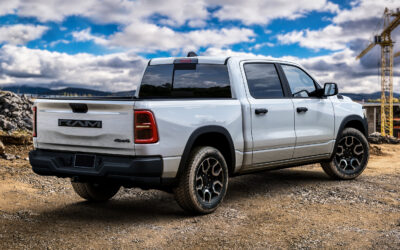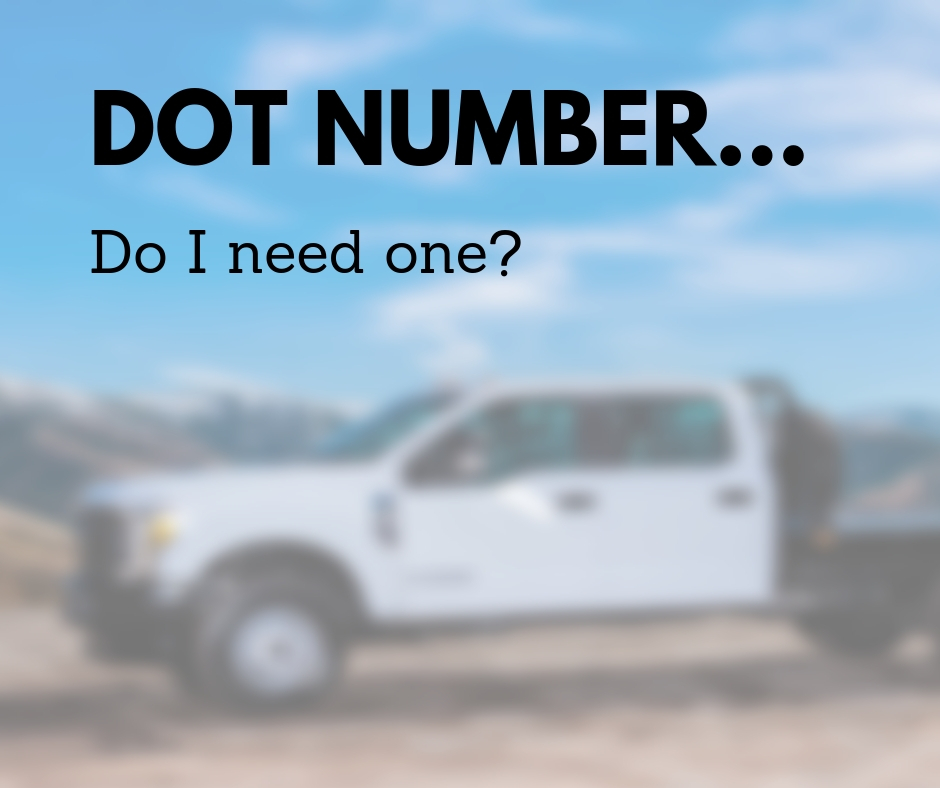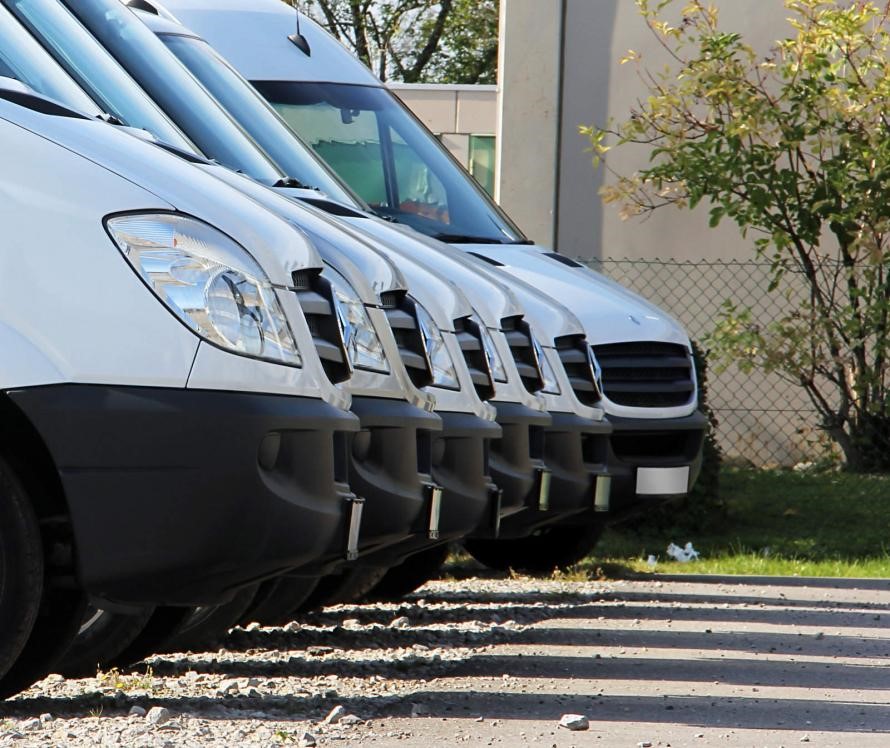Fleet Insurance Guide
Having a full commercial fleet is something to be proud of and something to protect. A commercial fleet can transform a small business. A fleet consists of vehicles that can provide and perform incredible services for your business, but those vehicles also come with risk. Each one is expensive and necessary. So to protect your fleet vehicles and your business, what can you do?
The answer is fleet insurance. Having the right coverage from fleet insurance can help your business protect its fleet, which will ultimately protect your company. Read on to learn more about what fleet insurance is, the benefits of utilizing fleet insurance, how it works, how much it can cost, and how to choose the right insurance provider for your fleet.
What Is Fleet Insurance?
Fleet insurance is a type of commercial vehicle insurance that covers an entire fleet instead of only one vehicle. It’s considered the most efficient way to protect a fleet because it gives you a way to insure every vehicle in your fleet at once. Instead of having to take out a commercial vehicle insurance policy for every vehicle, you can have one umbrella policy that takes care of it all.
Fleet insurance covers more than just the vehicles; it covers your drivers. Fleet insurance allows businesses to insure all drivers on all the vehicles as well, and it’s simple to add drivers as your business expands. Fleet insurance also makes it possible to assign specific drivers to specific fleet vehicles, if that works better for your business.
Benefits of Fleet Insurance
Fleet insurance comes with many benefits. The overarching benefit is that fleet insurance allows you to cover all of your vehicles with only one policy instead of requiring a policy for every vehicle and driver. Allowing you to do this saves your business:
- Time. It takes time to get a policy for every vehicle, and it takes time to manage them. With fleet insurance, you only need to worry about one policy, which can reduce the time you spend filling out paperwork to protect your fleet.
- Energy. Managing your fleet’s policies would be overwhelming, especially if you have a large fleet. It’s already a lot of work to manage your fleet. Luckily, there’s no need to add managing insurance policies with fleet insurance.
- Money. The biggest benefit of fleet insurance is that it saves you money. If you had to pay a premium for every vehicle in your fleet, insuring your fleet would be practically impossible. With fleet insurance, you only pay one premium, and it’s significantly lower than covering each vehicle individually.
Once you have your fleet insurance policy in place, it will also help you should there be an accident. Instead of needing to file a claim for each vehicle involved separately, you can streamline the process with fleet insurance and file one claim for all damaged vehicles.
How Does Fleet Insurance Work?
Fleet insurance provides coverage to all vehicles in the fleet, not just one. When you take out a policy, it will cover your entire fleet, and it’s simple to update it. But what does fleet insurance cover? Technically, fleet insurance works like auto insurance and comes with two basic coverage options:
- Liability. Liability insurance covers damage to property and bodily injuries for any third-parties involved in a collision. If one of your drivers is at fault for the accident, this insurance will cover repairs for the other parties and any injuries.
- Physical damage. This type of coverage could include comprehensive coverage that will also provide coverage for your own vehicles and drivers in case of an accident. You can also choose a type of policy that will cover other types of physical damage, like fire and theft.
In addition to the basic coverage options, fleet insurance can often cover:
- Rentals. If your vehicle is damaged, your policy could help you pay for a rental vehicle that will help you get the job done.
- Towing. If a vehicle needs to be towed (whether from an accident or a malfunction), some policies will allow you to cover that with your fleet insurance policy.
- Accessories. If you have trailers involved, adding accessory coverage could be a beneficial way to insure all aspects of your fleet.
How Much Is Fleet Insurance?
Fleet insurance is an excellent way to save money while protecting your fleet, but how much could fleet insurance cost? There’s no flat rate for fleet insurance, which makes it difficult to determine exactly how much a policy could cost every business. The average cost for fleet insurance, though, is $1,000–$1,500 a year split among monthly premiums that average at about $84–$125. But there’s no set cost, and your exact cost will depend on a variety of factors:
- Fleet size. The number of vehicles in your fleet will greatly affect how much your fleet insurance premiums will be. More vehicles means higher premiums and vice versa.
- Type of vehicle. Just like with car insurance, the type of vehicle will affect cost. Your insurance provider might consider the mileage on the vehicles, how old they are, where they’re parked, and other factors before giving you a quote.
- Claim history. Like with auto insurance, a history of frequent claims will make your insurance rates rise.
- Industry. The industry your business is in can affect the costs. For example, fleet insurance premiums for taxi companies can often be higher due to the nature of the job. Drivers may be in a hurry and are paid by time, so they often pose a higher risk.
- Location. Insurance is always affected by the rates in your area, so where your business is located will affect what you pay.
- The type of freight. Depending on what your vehicles transport, you could have higher or lower premiums.
- Deductibles. As with other insurance options, a lower deductible means higher premiums, and a higher deductible will mean lower premiums.
These factors can affect what you end up paying. The specifics of your policy will also greatly affect what you pay. For example, a policy that’s comprehensive will cost more than one that’s just third-party liability insurance.
How to Choose the Right Insurer for Your Fleet
To prepare for fleet insurance, it’s worth considering the data in your area, so you have a solid idea of how much your policy may cost your business. The right insurance provider will be the one that provides the coverage you need for the lowest possible price.
As you consider what is right for your business and fleet, consider what types of coverage will be necessary for your business. You might consider:
- Increased coverage for physical damage. This is especially important for expensive vehicles or vehicles with higher risk.
- Higher liability coverage. Liability coverage has a limit, but you can expand that limit, so your policy will cover more damage your drivers are at fault for.
- Product insurance for the assets being transported. This type of insurance will protect your cargo if an accident occurs and damages your assets.
- Roadside assistance coverage. If a vehicle breaks down, pops a tire, or is stalled for another reason, this type of coverage would include tow trucks, roadside aid, and other services.
- Uninsured motorist coverage. If your drivers are involved in an accident where the other party is uninsured, this type of insurance will cover all of your expenses when there’s no third party to step in.
These additional coverage options can be beneficial for many fleets, so it’s important to choose an insurance provider that offers these types of coverage. One important aspect of fleet insurance is having coverage for renting vehicles while repairs are being done. Vehicle rentals allow you more flexibility with your business and can keep your business moving, even if the unexpected happens. Fleet insurance companies will often include this add-on for a reason. Learn more about our available trucks and rentals today!






